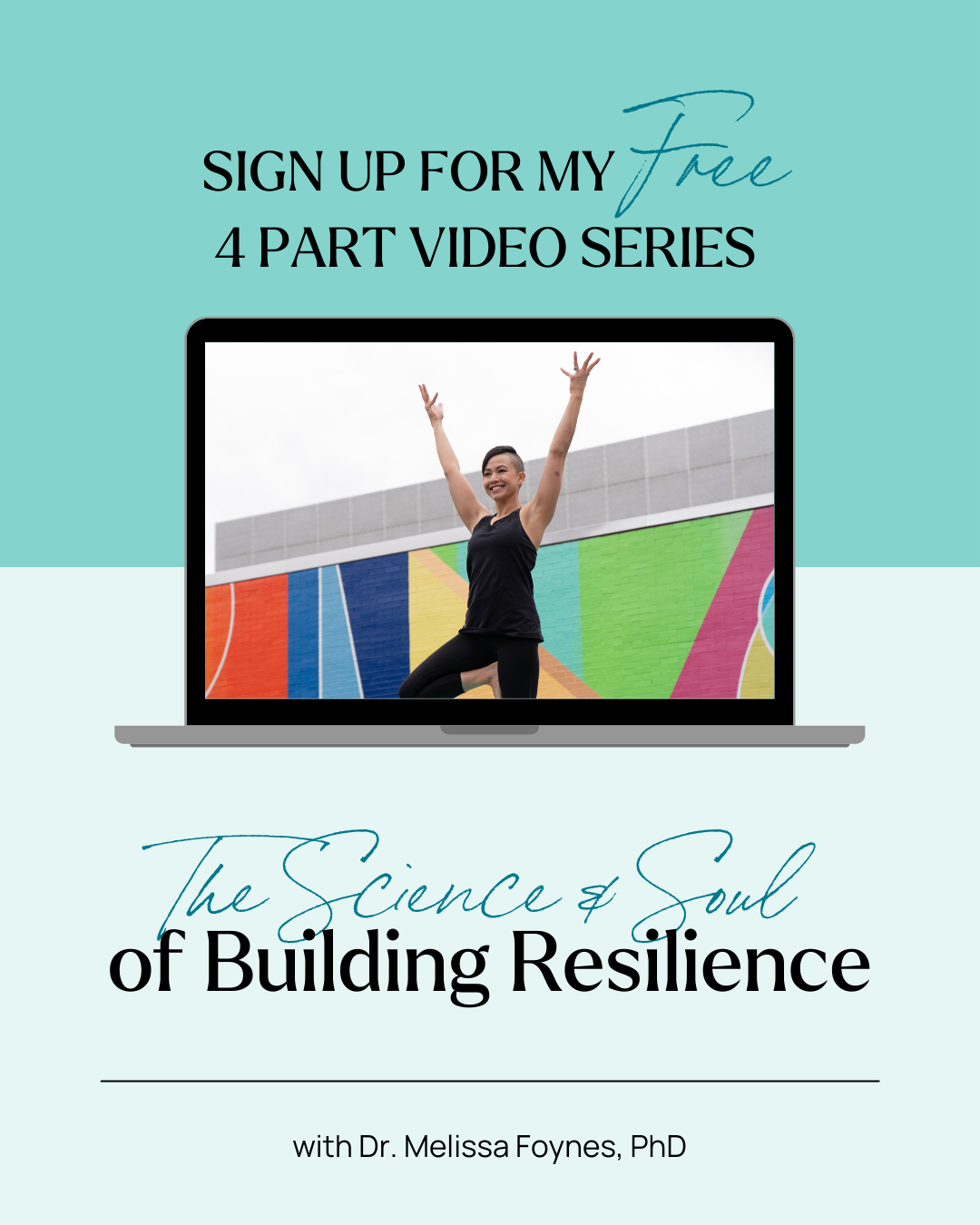welcome, I'm Melissa
Links
As a holistic coach, psychologist, mindfulness, meditation & yoga instructor, & Ayurvedic doula I offer personalized paths to growth & healing.
you may also like...
Grief Without Death & How to Find Gratitude
March 11, 2021
Amy Wright Glenn is the founder of the Institute for the Study of Birth, Breath, and Death and the author of Holding Space: On Loving, Dying, and Letting Go.
She is a dear friend and colleague, who is able to speak about the topics of grief and loss with heart, integrating what we know about these tender human subjects with research and science.
In my interview with Amy, we speak about:
- What it means to live in a grief-denying culture and steps we can take to work toward shifting this perspective.
- Grieving losses that don’t involve a physical death — such as estrangements, challenging relationships with caregivers, and loved ones with mental health challenges — as well as how our early childhood models for relating to emotions affect the ability to process grief.
- The intersection of grief and gratitude, including how the two can co-exist without gratitude bypassing or diminishing the genuine pain of grief and loss.
Following are some highlights from our discussion.
Interview with Amy Wright Glenn on Grieving and Grief without Death
Grief-Denying Culture
 Melissa: In many ways, I think of our culture as a grief-denying one, more than death-denying one.
Melissa: In many ways, I think of our culture as a grief-denying one, more than death-denying one.
We can pathologize people who are grieving or who are grieving in ways that don’t make sense to us. And there can be a lot of discomfort around grief.
What are your thoughts on this needed cultural shift towards embracing and holding space for grief?
Particularly when it comes to losses without a physical death, and how can we embrace rather than turn away from people who are grieving.
 Amy: I think it’s wise to recognize the heart of why grief is suppressed or denied, or why we try to fix it quickly: it’s painful to soften into it.
Amy: I think it’s wise to recognize the heart of why grief is suppressed or denied, or why we try to fix it quickly: it’s painful to soften into it.
If I’m with you and you start speaking about grief and if I also carry a lot of undigested, unresolved grief — the energy of that will be activated in my body.
So I’m not able to fully listen and be present to you because inside my system is starting to go into fight, flight, freeze or fawn. It’s starting to activate memories that I don’t necessarily even understand.
Sometimes the grief we’ve experienced is encoded in our implicit memory system and not our explicit memory system.
The body is starting to get triggered with a story of grief because we haven’t digested our own grief or haven’t been able to reconcile our grief.
If that is happening between two good friends, then it’s also echoed in the broader culture. This can impact and compound what it’s like to change a culture.
We need to have a critical mass of people willing to look at their own lives so we can shift our culture — so that grief is something that we acknowledge as part of the human story, a normal part of human life.
Because we love, we grieve and it’s not only about physical death.

Grief Without Death
 Melissa: I love what you said about how part of shifting this culture involves healing ourselves.
Melissa: I love what you said about how part of shifting this culture involves healing ourselves.
Healing often needs to start within because it’s difficult to fully hold space for another when someone else’s grief is activating ours.
One specific type of non-death loss that has been on my mind lately is loss related to parents or caregivers, who are not dead, but who have not provided in the ways that we have needed and deserved.
Can you speak to these specific kinds of losses related to caregivers and the kinds of grief and wounds that they can create for us?
 Amy: We know through a lot of peer-reviewed research that it really just takes one care provider who’s consistent, who’s reliable and who’s emotionally attuned to a child to make a huge positive difference in a child’s life.
Amy: We know through a lot of peer-reviewed research that it really just takes one care provider who’s consistent, who’s reliable and who’s emotionally attuned to a child to make a huge positive difference in a child’s life.
It doesn’t even need to be someone related to the child. Even one healthy adult in a child’s life can make a significant difference in that human being’s trajectory.
As a child grows, both the implicit and explicit memories of poor caretaking, abusive caretaking, disconnected caretaking or significantly ineffective caretaking are present.
And that is a death.
You don’t need to have a physical body die for a child to experience a significant loss.
Somewhere in the child’s body, she or he knows something’s wrong with mom or dad, or my grandma who raised me. Something is so off that I don’t feel seen; I don’t feel like I can be me. And there’s a deep loss.
There’s a loss of the normal and healthy stages of childhood development.
There’s a loss of trust, and there’s a loss of the capacity to be vulnerable with a care provider and to be held.
Grief and Compassionate Presence
 Melissa: Something that came to mind for me while you were speaking was this idea of compassionate presence — and how important that is for us to receive as children.
Melissa: Something that came to mind for me while you were speaking was this idea of compassionate presence — and how important that is for us to receive as children.
 Amy: Our limbic brain is wired to mirror and to resonate. Limbic resonance happens when a child is breastfeeding and there’s eye contact; you resonate, and infants are always looking to resonate.
Amy: Our limbic brain is wired to mirror and to resonate. Limbic resonance happens when a child is breastfeeding and there’s eye contact; you resonate, and infants are always looking to resonate.
And if mom or dad isn’t resonating — if cries are left for hours and unattended to, or if the care provider is always staring at the phone and not at the face of the child — we know that affects the brain.
The development of the brain of the child and secure attachment is wired in those first three years.
Whether it’s mental health issues with parents, substance abuse with parents, parents who were abusive, or just neglectful and caught in their own world, there’s loss there.
There’s grief there – but also the grief of who we would have been.
Who could I have been if I had a mother or father who actually showed up for me?
 Melissa: I hear this so often — this grief around who could I have been if it weren’t for this experience.
Melissa: I hear this so often — this grief around who could I have been if it weren’t for this experience.
 Amy: I think that change isn’t quite possible without that acknowledgement. I really do think it’s important to name and acknowledge, in whatever way makes sense to you, the grief that you’re holding.
Amy: I think that change isn’t quite possible without that acknowledgement. I really do think it’s important to name and acknowledge, in whatever way makes sense to you, the grief that you’re holding.
In my experience, gratitude and grief are often interwoven.
A person can live a life with a great deal of grief and still cultivate gratitude for the pieces that feel heartfelt.
I’ll just say that in my quiet meditations — when I’ve sat with grief — I have also found gratitude.
They’re not always in the same moment, and it’s not that I’m grateful that I was experiencing harm. But I’m grateful that I can learn, that I can choose.
Grief and Gratitude can Coexist
 Melissa: That’s such a beautiful articulation because I think people often hear this message about gratitude and how important it is for mental health and resilience.
Melissa: That’s such a beautiful articulation because I think people often hear this message about gratitude and how important it is for mental health and resilience.
And for people who have been deeply traumatized and hurt, that can lead to a lot of anger or a lot of guilt if people don’t feel gratitude.
I think that there is a misconception that gratitude needs to be expressed for the traumatic or stressful event itself.
That’s not necessarily what we are advocating for or talking about; we’re talking about gratitude that can be found in other places. I’m not grateful that I was harmed the times in my life that I was harmed. I’m grateful that I am here trying to be resilient and to recover from these experiences.
There’s nothing wrong with you if you are having trouble connecting with gratitude. I think cultivating gratitude is a practice and a process like working through grief is a practice and a process.
 Amy: Gratitude can be used to bypass grief reveals how deeply grief-denying our culture is.
Amy: Gratitude can be used to bypass grief reveals how deeply grief-denying our culture is.
It’d be fascinating to find a culture — or create a culture — where grief is less feared.
There’s less resistance to grieve when we can trust our body’s sorrow and that the body can carry grief and digest it with the compassionate presence of support.

 Melissa: Having the ability to trust ourselves to work through grief feels more possible when our culture supports us.
Melissa: Having the ability to trust ourselves to work through grief feels more possible when our culture supports us.
If I can trust that other people can hold my grief and allow me to be in whatever shape or form I am when grieving, that helps me trust myself and integrate grief into my life.
 Amy: Right. I would garner that those of us who can relate to the concept of fear of grief — or fear of any emotion that was considered inexpressible in our family of origin — that it all connects again to the parent and the grief around parenting, the loss of calm and mindful parenting.
Amy: Right. I would garner that those of us who can relate to the concept of fear of grief — or fear of any emotion that was considered inexpressible in our family of origin — that it all connects again to the parent and the grief around parenting, the loss of calm and mindful parenting.
 Melissa: That disconnection happens so early and affects our relationship to emotions and the ability to integrate our emotions.
Melissa: That disconnection happens so early and affects our relationship to emotions and the ability to integrate our emotions.
I think it can certainly lead to feeling as though we’re not capable of handling our emotions, and the main solution is to shut them off — to disconnect and to not feel.
 Amy: And we can perpetuate a grief-denying culture.
Amy: And we can perpetuate a grief-denying culture.
 Melissa: Many of us are in roles in our lives that involve guiding and nurturing others.
Melissa: Many of us are in roles in our lives that involve guiding and nurturing others.
I think there are ways that we are very conscious of the patterns that we’ve internalized and can be conscious about not repeating them. And I think there are ways that we’re affected sometimes by these early models and early interactions with our families that we’re less aware of.
It’s really important to step into the responsibility of creating this different culture.
 Amy: I think that’s a nice way to conclude and to circle back, reminding people that changing culture begins within.
Amy: I think that’s a nice way to conclude and to circle back, reminding people that changing culture begins within.
Next Steps:
For my complete conversation with Amy about grief without death and shifting our grief-denying culture, listen to the full podcast episode:
MAKE SURE TO SUBSCRIBE TO THE SCIENCE & SOUL OF LIVING WELL PODCAST.
Apple | Google | Spotify | iHeart | Audible
You can also contact me or join us on Instagram – @drfoynes.
About Amy Wright Glenn:
Amy earned her master’s degree in Religion and Education from Teachers College, Columbia University. She taught for 11 years in The Religion and Philosophy Department at The Lawrenceville School in New Jersey, earning the Dunbar Abston Jr. Chair for Teaching Excellence. Amy is a Kripalu Yoga teacher, (CD)DONA birth doula, hospital chaplain, Birthing Mama® Prenatal Yoga and Wellness Teacher Trainer, and a regular contributor to PhillyVoice, writing on mindfulness, spirituality, parenting, ethics, birthing and dying. She is the author of Birth, Breath, and Death: Meditations on Motherhood, Chaplaincy, and Life as a Doula and Holding Space: On Loving, Dying, and Letting Go.
To connect further with Amy, follow her on Instagram (@birthbreathanddeath or @amy_wright_glenn) or visit her website.
Related Resources about Grief:
- Navigating Grief: 5 Approaches for Coping
- Free Video Coaching Series: The Science and Soul of Building Resilience
BEFORE YOU GO…
DOWNLOAD THE FREE 49 PAGE WORKBOOK
LEARN MORE ABOUT MY COACHING PRACTICE THROUGH THIS FREE VIDEO SERIES:
The Science & Soul of Building Resilience
In this 4-part series you’ll learn:
- Body awareness to help us center ourselves and live in a present-focused and embodied way even in the midst of stress
- Decreasing our stress response so we can access intuition and connect to our needs
- Values clarification to guide decisions about prioritizing our time, attention and energy
- Self-compassion to soften our harsh inner critics and facilitate growth following mistakes
Freebie Alert!
Freebie Alert!
Newsletter
Sign up to get a dose of love, inspiration, wisdom &
all the latest news on events straight to your inbox.
privacy
terms
made with ❤ by habitat society
Explore
©2022, Melissa foynes
Thank you
You're subscribed to my newsletter. Please whitelist my email to make sure you don't missing anything I send you.

